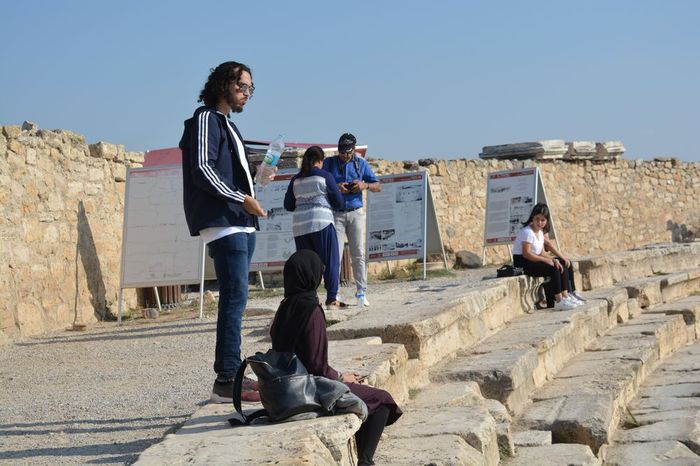The State had also always kept a large number of camels, which carried all the baggage when the Roman army marched against the foe. Thus the peasants did not have to carry burdens, and the soldiers lacked no necessity. But Justinian did away with almost all of these animals. Consequently when the Roman army now marches against the enemy, it is impossible for it to be supplied with what it needs. Such was the zeal he displayed for the interests of the State.
There is nothing like mentioning one of his ridiculous acts. Among the lawyers at Caesarea was one Evangelius, a man of no mean distinction, who, favored by the winds of Fate, became the master of much money and much land.
Eventually he bought a village on the seacoast, named Porphyreon, for three gold centenaries. Learning of this, Justinian immediately took the place from him, giving him back only a small fraction of the price he had paid, and uttered the remark that it would never do for Evangelius, a mere lawyer, to be the lord of such a village. Well, we must stop somewhere when we begin to recall all these stories.
This, however, is worth telling among the innovations of Justinian and Theodora. Formerly, when the Senate approached the Emperor, it paid homage in the following manner. Every patrician kissed him on the right breast; the Emperor kissed the patrician on the head, and he was dismissed. Then the rest bent their right knee to the Emperor and withdrew. It was not customary to pay homage to the Queen.
But those who were admitted to the presence of Justinian and Theodora, whether they were patricians or otherwise, fell on their faces on the floor, stretching their hands and feet out wide, kissed first one foot and then the other of the Augustus, and then retired. Nor did Theodora refuse this honor; and she even received the ambassadors of the Persians and other barbarians and gave them presents, as if she were in command of the Roman Empire: a thing that had never happened in all previous time.
Emperor or Empress without adding
And formerly intimates of the Emperor called him Emperor and the Empress, Empress; and the other officials according to the title of their rank. But if anybody addressed either of these two as Emperor or Empress without adding “Your Majesty” or “Your Highness,” or forgot to call himself their slave, he was considered either ignorant or insolent, and was dismissed in disgrace as if he had done some awful crime or committed an unpardonable sin.
And before, only a few were sometimes admitted to the palace; but from the time when these two came to power, the magistrates and everybody else had no trouble in fairly living in the palace. This was because the magistrates of old had administered justice and the laws according to their conscience, and made their decisions while in their own offices, while their subjects, neither seeing nor hearing any injustice, of course had little cause to trouble the Emperor.
But these two, taking control of everything to the misfortune of their subjects, forced everyone to come to them and beg like slaves. And almost any day one could see the law courts nearly deserted, while in the hall of the Emperor there was a jostling and pushing crowd that resembled nothing so much as a mob of slaves.
Those who were supposed to be in the imperial favor would stand there all day and most of the night, sleepless and foodless, until they were exhausted; and this is what their presumed good fortune got them. And those who were free of all this sort of thing, asked each other what would become of the prosperity of the Romans.
For some were sure it was already in the hands of the barbarians, and others said the Emperor had hidden it away in his various dwelling places. But only when Justinian, be he man or King of the Devils, shall have departed this life, shall they who then happen to survive him, discover the truth.
Read More about The Secret History part 34








